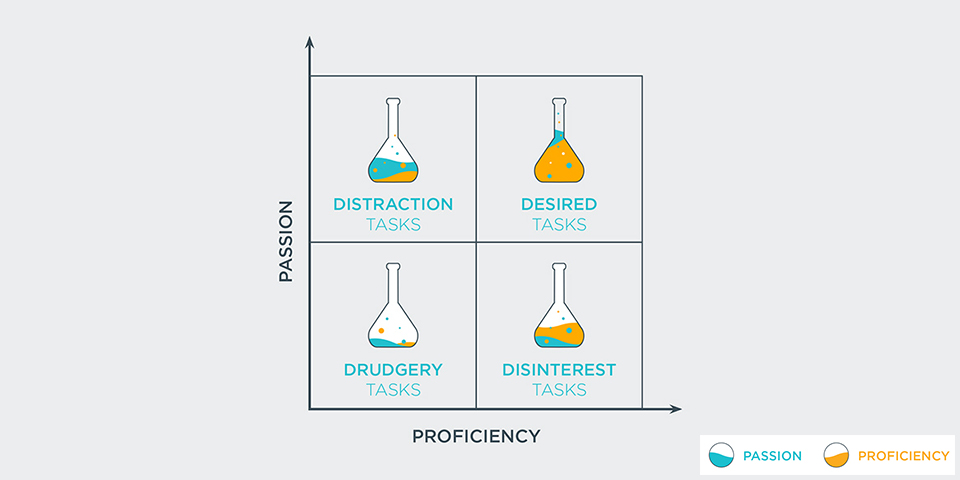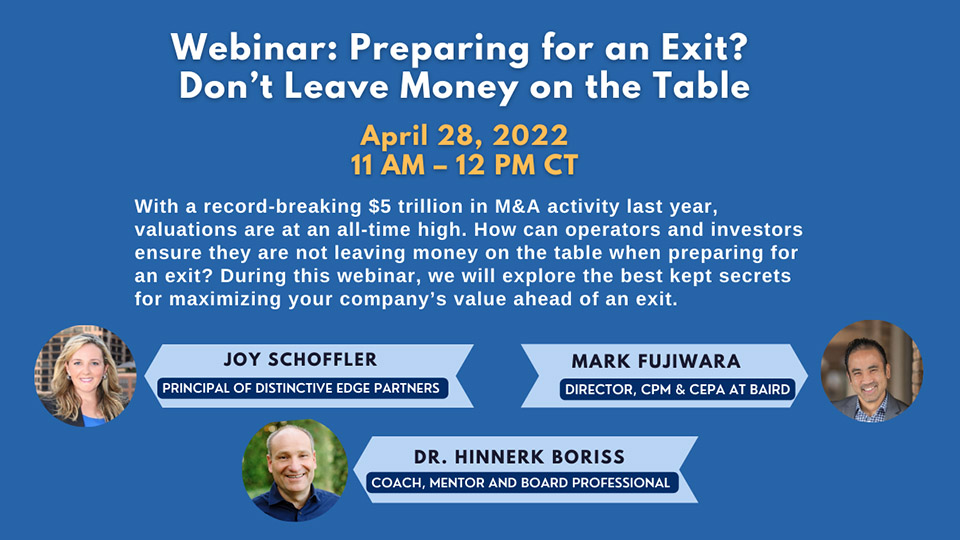Next Generation Companies
Great leadership has always been crucial for success.
To succeed in today’s complex world, Next Generation Companies are purpose driven companies led by balanced CEOs who realize that their professional and personal growth is key to unlocking their full potential and to developing full spectrum leadership, building a culture of trust and overcoming gender stereotypes, so that their companies can succeed in highly competitive and innovation driven marketplaces with ease over the long-term.

Our
Core Beliefs
1. Purpose
Purpose driven companies create deeper connections with consumers, do more for their communities, attract and retain better talent, and in the process, they are achieving greater results and impact.
Purpose-oriented companies have higher productivity and growth rates, along with a more satisfied workforce who stay longer with them. Research shows that such companies report 30% higher levels of innovation and 40% higher levels of workforce retention than their competitors.
2. Balance
Balance is intuitive discernment of what's right: when to tightly control a process and when to trust teams; when family time yields better outcomes than client proposals; when to reflect and when to act.
Clearing tension between competing interests achieves balance, enhancing CEOs' resilience and influence. It reduces friction and amplifies impact on those around you.
3. Professional Growth
Increasing leadership effectiveness boosts business performance by 40%, making leadership growth pivotal. Evolving as a leader entails mastering relational skills like trust-building, providing direction, and fostering engagement and accountability. It's also about enhancing focus and execution.
Professional leadership growth is personal development. It involves self-discovery, clarity, and replacing automatic reactions with conscious responses. Understanding our unconscious tendencies reduces reactivity and inspires others to self-reflect. Recognizing strengths, habits, motives, and blind spots grants flexibility in interactions.
4. Full Spectrum Leadership
Integral or transcendent leadership merges dualities like "results orientation" and "visionary flare." Operating on autopilot, we tend to favor one over the other, ignoring their interplay. Dismissing results for vision signals tension between these poles. By resolving such tensions, leaders embody full spectrum leadership, embracing qualities across the spectrum. This enables selecting optimal responses, enhancing communication and averting conflict.
5. Trust
Trust underpins all relationships, fostering efficient, low-stress outcomes. Cultivating trust in your organization yields long-term benefits, directly impacting the bottom line.
In high-trust environments, clarity reigns: shared goals, defined roles, articulated standards, and prioritized results. Establishing this requires deliberate effort, as low-trust dynamics often emerge unintentionally.
6. Gender Stereotypes
To transcend gender stereotypes, shift focus from differences to commonalities: both genders possess masculine and feminine traits. Individuals vary in their use of these patterns. Clarify intentions for gender balance: Is it for compliance or to harness diverse perspectives for better decisions?
7. Relationship Mastery
Individual victories don't guarantee long-term success in business or life. While we may win deals or hire experts, sustained success requires nurturing relationships for repeat business and employee retention.
Strained relationships increase customer acquisition costs and staff turnover, hampering ROI and hindering investment in innovation. CEOs must prioritize relationship-building to foster trust among stakeholders, ensuring sustainable success in the marketplace.
What is the
Next Gen CEO circle?
Our mission is to help CEOs succeed in business and life with a great sense of fulfillment.

Next Gen CEO circle groups are a place for close connections with peers.
They broaden your perspective for better decisions. The groups are like having a confidential, private advisory board to troubleshoot problems, vet ideas and identify blind spots.
The local business leaders in the peer groups help each other succeed.
Typically, the peer groups have 8 to 15 members and are composed of CEOs, founders, and entrepreneurs spanning a range of industries.
Our members set aside one day each month to meet with their peer group in person to work on their business, not in it. That means members make time to tackle big-picture plans, as well as issues that may be holding them back. During the meeting, they help each other vet ideas, troubleshoot strategies and find solutions together.
The meetings are facilitated by an experienced executive coach. Most meetings include a workshop to stimulate new ways of thinking to open space for novel business solutions.

In addition, members learn new ways of seeing their business, people and their technology and systems in two hours of executive coaching each month. Coaching is performed by a highly experienced CEO who trains members in new thought patterns and behaviors that have disproportionately positive impact on outcomes.
Benefits
- Creating new markets
- Customer centric thinking and communication
- Creating aligned high-performance teams
- Solving the challenges of new sustainable business models and technologies
- Increase efficiency and margins
- grow your business even in times of inflation, soaring energy prices and a war for talent
- build effective business systems and procedures
- build a trust-based company culture even in high-pressure environments
- Attract and develop the most talented people
- Build high-performance teams
- Retain qualified people and keep the churn rate low
- Get inspired by other business leaders
- Build connections and friendships amongst chief executives
- Build a support network
- Be exposed to the latest ideas for growing your business and tackling challenges
- Learn how others have experimented with new business models or product development approaches
- Accelerate traction with creative approaches
- Get inspiration and support on how to evolve your current business model
Our Members
Our members are CEOs, founders, and entrepreneurs of a broad range of companies. They include technology and innovation driven startups, but also more mature SMEs and service providers striving for excellence in their market segment.
We think this paradigm is no longer compatible with a world where customers have matured and have widespread access to information and easily debunk superficial value propositions.
We advocate directing the vision outward. Those who join our community are drawn to a vision centered on serving customers, staff, and the world. They prioritize enhancing business effectiveness, leading fulfilling lives, and finding joy in their pastimes.

Our Members Are:
- CEOs of small and medium sized organizations operating at the leading edge of business, technology, service, and sustainability
- CEOs having a desire to become a better leader with a mission to make the world a better place
- Action oriented CEOs open to learn and evolving professionally and personally
Our Members Are NOT
- Anyone not in the role of a CEO, founder or entrepreneur
- Any CEO intending to capitalize on their peers’ strategy, vision or practices without contributing
- Anyone believing they know everything
- Any CEO promoting a business model that flagrantly exploits people and the planet
Next Gen Blog
“Transcendent leadership is not about learning or relying on someone else.”
It is about equipping yourself with what you need on your journey. It is about accessing the tools, methods, and spiritual processes that open your full inner capacity – utilizing them and applying them daily.
“Don’t listen to the person who has the answers; listen to the person who has the questions.”
Successful people ask better questions, and as a result, they get better answers
“One of the burdens of leadership is that as we go, so go the people we lead. Reaching our potential sets and environment for others to reach theirs.”
When leaders stop climbing, two questions need to be asked: “Can they improve?” and “Will they improve?” Some people can’t, they’ve reached their limit. Others won’t. Capacity is not the problem: choice and attitude are.
“I define a leader as anyone who takes responsibility for finding the potential in people and processes, and who has the courage to develop that potential.”
When leaders stop climbing, two questions need to be asked: “Can they improve?” and “Will they improve?” Some people can’t, they’ve reached their limit. Others won’t. Capacity is not the problem: choice and attitude are.
“Strong relationships are the foundation of high-performing teams. And all high-performing teams start with trust.”
In weak cultures, people find safety in the rules. This is why we get bureaucrats. They believe a strict adherence to the rules provides them with job security. And in the process, they do damage to the trust inside and outside the organization.
“Systems permit ordinary people to achieve extraordinary results predictably”
However, without a system, even extraordinary people find it difficult to predictably achieve even ordinary results.




